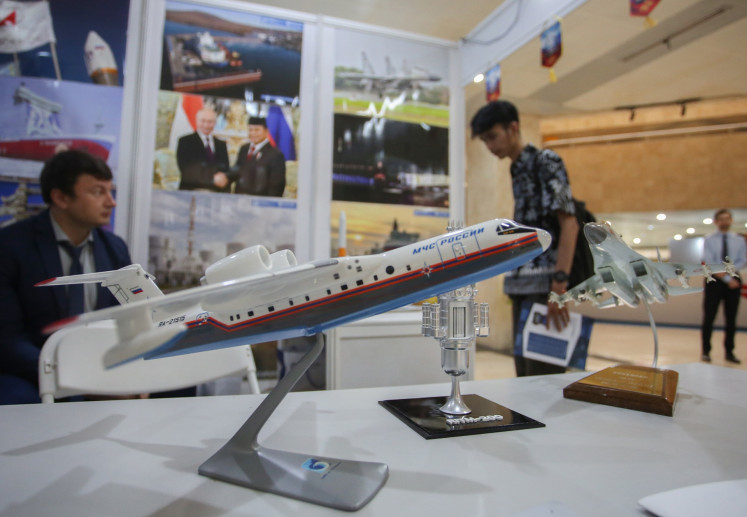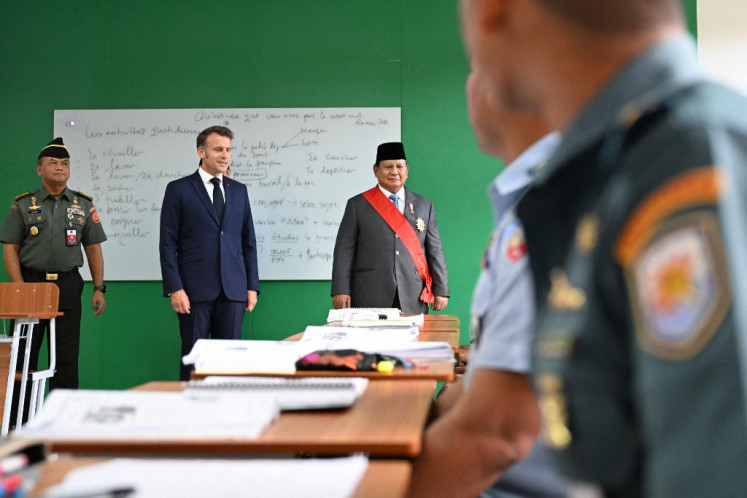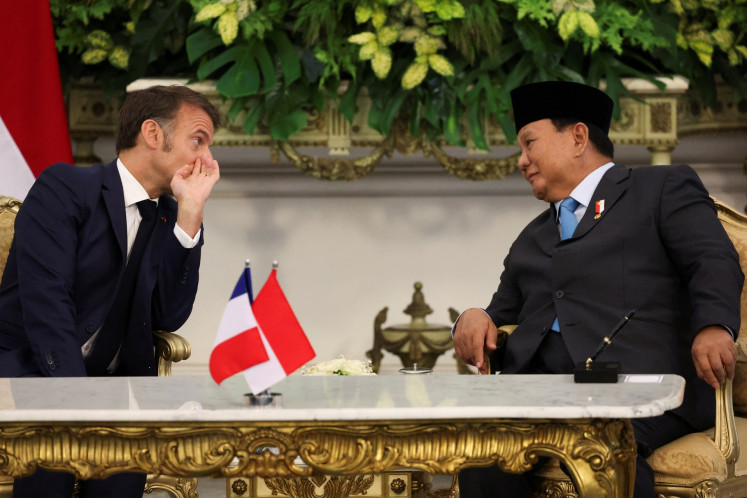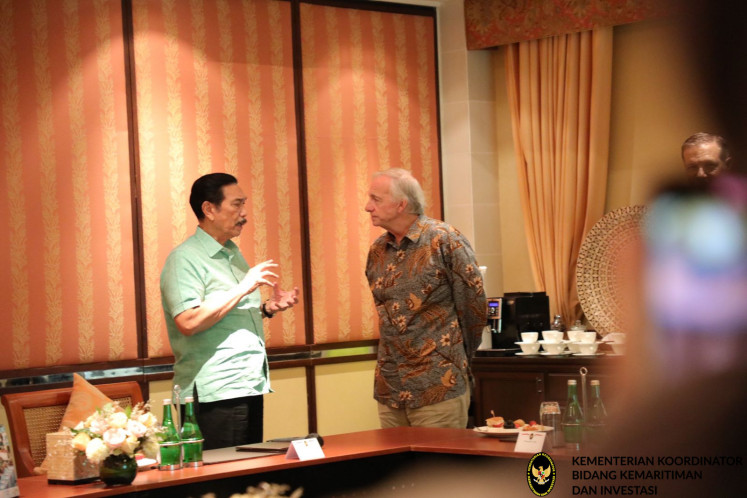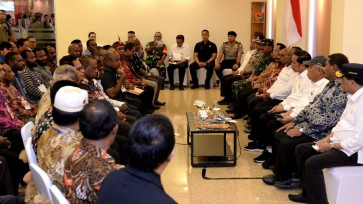Amended Papua autonomy offers opportunities for progress, prosperity
The amendments to the Papua Special Automony Law provide an opportunity for the government to improve its development approach to Papua, as well as for Papua to capitalize on this.
Change text size
Gift Premium Articles
to Anyone
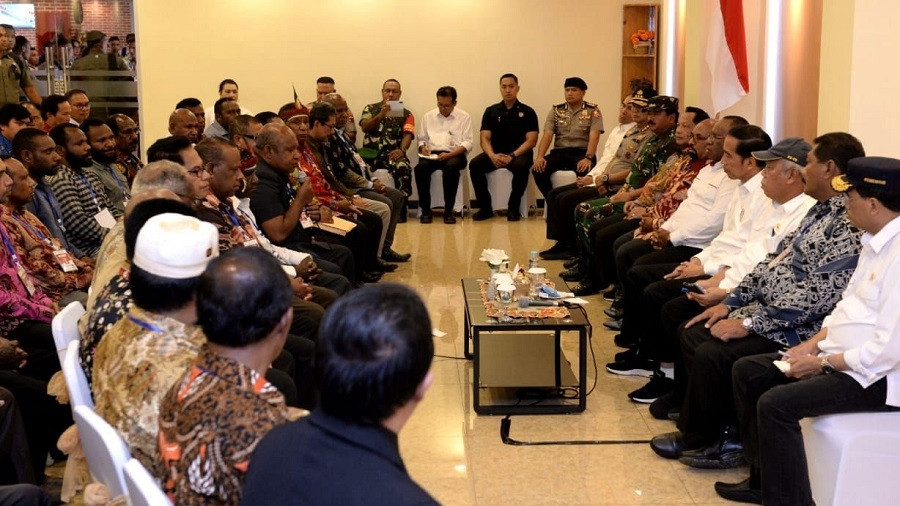 President Joko “Jokowi” Widodo (fourth right) listens to community, customary and religious leaders of during a dialogue on Oct. 28, 2019 in Wamena. the capital city of Jayawijaya regency, Papua . (Courtesy of/Presidential Secretariat)
President Joko “Jokowi” Widodo (fourth right) listens to community, customary and religious leaders of during a dialogue on Oct. 28, 2019 in Wamena. the capital city of Jayawijaya regency, Papua . (Courtesy of/Presidential Secretariat)
T
he law on special autonomy for Papua is a political agreement between Papua and the central government to resolve decades of multidimensional distrust and conflict. Ronny Kareni's opinion piece, “Special autonomy for Papua: The trickery of Jakarta's policy” (The Jakarta Post, Sept. 11, 2021), is misleading.
Papua special autonomy represents a policy that is both anticipative and responsive to the problems faced by the Papuan people two decades ago when Law No. 21/2001 came into force, as well as in recent times.
The central government is committed to improving its development approaches, which were generally not in favor of the native Papuans in the past. The general consensus that still holds is the need to comprehensively address the implications of the underdevelopment and marginalization of Papuans in all areas of development.
Yet, the special autonomy policy for Papua is the formal basis for the state to grant special powers to the local administration and native Papuans. There is strong commitment to improving affirmative action and funding for Papua, including affirmative policies in education and the recruitment of native Papuans as local and national civil servants.
On the other hand, most notably from Papua’s perspective, the law offers an opportunity to advance local interests, such as accelerated development in various fields. As such, the law is a gateway to improving the quality of public administration and services to be more in line with the geographical and demographic characteristics of Papua.
Ronny’s allegation that the law’s amendment skipped consultations with various segments of the Papuan community is not true. FIrst and foremost, as the media reported, many Papuans demanded the extension of special autonomy. As such, the House of Representatives formed a special committee to amend the law.
Lawmaker Komarudin Watubun, a native Papuan, chaired the committee, which consulted various parties in Papua, including the local legislature and the Papua People’s Assembly (MRP).






